SIS students gain hands-on experience through Alternative Spring Break 2023
The Wayne State University School of Information Sciences (SIS) hosted Alternative Spring Break (ASB) for 10 students in March 2023 at institutions including the Bentley Historical Library, Maryland State Archives, Illinois State Archives, National Museum of American History, and Wayne State's own Walter P. Reuther Library.
Alternative Spring Break is a competitive program in which chosen applicants are paired with one of the country's premiere information organizations for an intensive week-long internship that aligns with the student's area of interest. The program delivers invaluable work experience and networking prospects, significantly impacting students as they navigate the transition from academia to the professional workforce. Read firsthand accounts of these unique experiences below.*
Amanda Ford
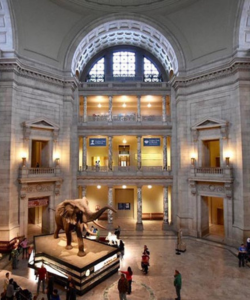
National Museum of American History
Washington, D.C.
"I recommend this program to other students. If you're new to archives, it's a good first step, and if you work in an archive already, it's nice to work in another environment."
I assisted in the creation of a finding aid for the museum's Bearing Witness exhibit and project, which was the museum's 9/11 exhibit and a companion memory project. I drafted a biographical/historical note and scope/content note, which involved a lot of processing and research since the exhibit happened in the early 2000s and not much internet information was archived at that time. My research even included a mini oral history interview with one of the curators of the exhibit, who had since retired from working at the museum.
On a professional level, this experience let me work with archivists in a larger setting than my own, and I not only gained some insight from them, but I was able to give them some personal insight as well since I work at a much smaller history museum.
Amie Fuentes
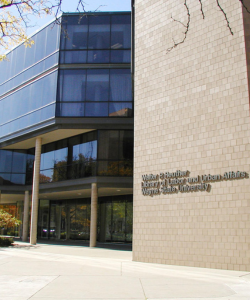 Walter P. Reuther Library
Walter P. Reuther Library
Wayne State University, Detroit
"I had a wonderful time during my Alternative Spring Break experience and would absolutely recommend it to other students. ASB was an incredible learning experience where I was able to discover what things I like as a future archivist and get to more deeply explore my interests."
I went through two linear feet (two archival boxes) of material of dissertation research done by Beverly Takahashi about In Home Supportive Services and National Home Care in California and the fight for unionization. After analyzing and sorting through the material, I used ArchivesSpace to make a finding aid so that this collection can be researched and accessible to others. (View Fuentes's ArchivesSpace project here.)
My entire week was filled with a lot of great conversations and learning experiences. I was able to speak to many of the library's archivists and talk about how to make myself a more desirable applicant in the future and tips on how to better cultivate a class schedule that lets me get the most out of graduate school.
ASB was my first hands-on experience within archives and because of that, has meant a great deal to me. It was my first time getting to explore a collection on my own, categorizing, writing and publishing my first finding aid. It meant a lot to be able to have something tangible and searchable that I can put on my CV and resume and feel confident in those skills moving forward.
Leah Minadeo
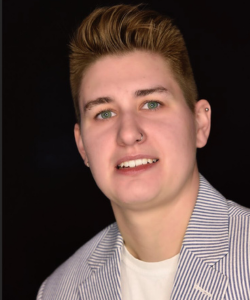 Bentley Historical Library
Bentley Historical Library
University of Michigan, Ann Arbor
"I would recommend that other students apply for Alternative Spring Break because there is nothing to lose. This is a practitioners' field and disciplinary concepts are made concrete with practice-based experiences. Look for a project that complements and diversifies your existing knowledge and experience."
I worked with Meghan Courtney, the Archivist for Academic Programs at the Bentley Historical Library, who was hoping to assess and further structure her archival instruction curriculum. After observing Meghan's instruction of several undergraduate classes learning to use primary sources, Meghan and I discussed her teaching strategies, goals and obstacles. One major obstacle for Meghan is that she must tailor her instruction to each course, so her curriculum must be flexible and modifiable. My research about teaching primary source analysis yielded a great deal of consistency, with Meghan's approach matching most other recommendations. With that, my goal was to help enhance the curriculum in consideration of the obstacles and intended learning outcomes articulated by Meghan and the faculty she supports. I developed structured lesson plans including suggested discussion prompts, talking points and modifications for three exercises Meghan already uses, and designed a fourth activity to support thesis development for students using primary sources.
Training in archival instruction is largely ad hoc and sparsely represented in our field's professional conferences. As a student interested in future instruction of both information science students and in an introductory/outreach capacity, this experience gave me in-depth exposure to pedagogical engagement with archival materials.
Megan Taylor
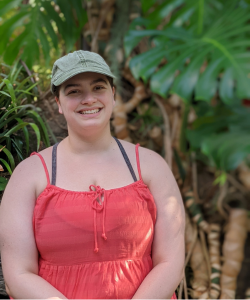 Illinois State Archives
Illinois State Archives
Springfield, Illinois
"I would recommend this experience to others. It is a great way to learn about the field in a short amount of time, and because it is during spring break, it didn't affect my schoolwork. I would especially recommend it if you don’t live in the Detroit Metro area, as there were plenty of remote opportunities."
I entered metadata from folders from the Governor Richard Yates correspondence collection. I also transcribed some of the items in those folders. I was also able to speak with one of the archivists that work at the Illinois State Archive, as well as the director of the Illinois State Archive, who shared information about his job and different professional organizations he is a part of.
This experience was a great way for me to meet professionals, gain experience and learn more about the field. I would not have been able to do this under other circumstances.
Allison Westfall
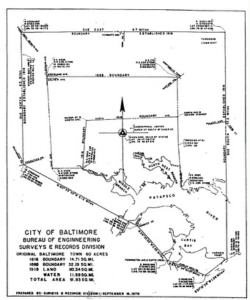 Maryland State Archives
Maryland State Archives
Annapolis, Maryland
"I strongly recommend the Alternative Spring Break experience to other students. It's important to get as much hands-on experience as possible to put classwork into practice. It helps solidify what you learn in the classroom and gives you the opportunity to network and see what the actual work is like. It can help solidify whether or not your specialty is what you really want to go into."
I was given two projects to help with at the Maryland State Archives; sorting and compiling books of plats (cartography relating to land ownership) and digitizing marriage certificates and state legislation. The archive wanted to send several of their on-site plats to a storage facility, but the state of organization in the drawers made it difficult to determine just how big the overall project was going to be. I helped organize three drawers, which contained 21 books in various states of organization and condition. I also helped scan 25,000 documents for digital public access, amongst which were old marriage certificates and modern legislation.
I was very grateful for the experience. It gave me the opportunity to see how a government archive operates and the kinds of projects I might encounter in a larger archive. It also gave me much-needed experience with digitization, tools and the maintenance required to keep them running.
Additional members of the Alternative Spring Break Class of 2023:
- LaChelle Barton – Illinois State Archives, Springfield, IL
- Jamie Chmara –Nebraska State Archives, Lincoln, NE
- Daniel Kelly –Massachusetts Institute of Technology (MIT), Cambridge, MA
- Jean Panyard – Walter P. Reuther Library, Wayne State University, Detroit
- Brittany Ploep –Herbert Hoover Presidential Library and Museum, West Branch, IA
*Minor revisions were made for clarity and conciseness.